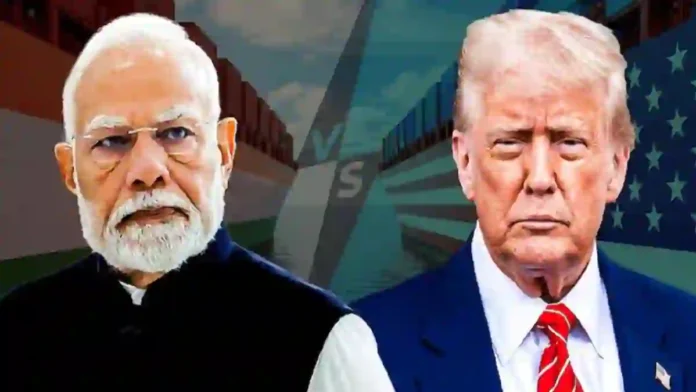American economist Richard Wolff has sharply criticised the United States’ recent decision to impose steep tariffs of up to 50 percent on Indian goods, describing this move as the US acting like the “world’s tough guy” while effectively “shooting itself in the foot.” Wolff highlighted that India, now recognised by the United Nations as the most populous country on earth, cannot easily be dictated to by the US, likening such efforts to a “mouse hitting his fist to an elephant.”
He warned that by pushing India with these tariffs—largely in response to New Delhi’s continued purchase of discounted Russian oil—the US risks driving India closer to the BRICS group of nations (Brazil, Russia, India, China, South Africa, and others), thus cultivating a more integrated and powerful economic alternative to Western dominance.
Wolff argued that the tariffs will likely cause India to seek new markets beyond the US for its exports, mirroring how Russia, under Western sanctions, found alternative buyers for its energy. This redirection of trade will strengthen BRICS as a formidable counterweight to Western financial systems.
He emphasised that the BRICS bloc now accounts for about 35 percent of global output, surpassing the G7 countries, which stand at around 28 percent. The economist suggested that rather than weakening BRICS, the US’s tariff imposition is accelerating its evolution into a more successful and unified economic force capable of challenging the West’s influence.
The context for the tariffs stems from US President Donald Trump’s efforts to pressure India to stop buying Russian oil, a key revenue source for Moscow’s conflict in Ukraine. Trump’s approach included labelling the BRICS group dismissively and threatening further tariffs against any efforts by the bloc to pursue a common currency.
However, Wolff cautioned that this hardline stance overlooks India’s longstanding relationship with Russia dating back to Soviet times and the geopolitical reality that New Delhi is a “very different adversary” than typical US trading partners.
Read- Sudarshan Chakra Will Be India’s Own Iron Dome
Read- Indian Air Force Was ‘On Song’ That Night: Air Chief Marshal AP Singh On Op Sindoor
India’s government has publicly criticised the move, calling the tariffs “unfair, unjustified and unreasonable” and has vowed to protect its economic interests. The tariffs appear discriminatory, as other major buyers of Russian oil like China and the EU have not faced similar penalties. economists see the US action as a power play that could harm American economic interests by impacting trade and jobs, while inadvertently bolstering the influence of a bloc seeking alternatives to Western economic control.
Wolff perceives the tariffs as a historic moment signalling a shift in global economic power where the US risks weakening itself by undermining relations with India and energising the BRICS coalition, which is advancing its vision of a multipolar global order less dependent on Western financial dominance. This development underscores the changing dynamics of global trade, power, and alliances in the face of ongoing geopolitical tensions.
This detailed analysis shows the consequences of US tariffs on India: reinforcing BRICS’ role as an economic alternative, challenging US influence, and pushing India toward diversified trade partnerships to safeguard its interests and sovereignty.
Based On ANI Report
Agency




